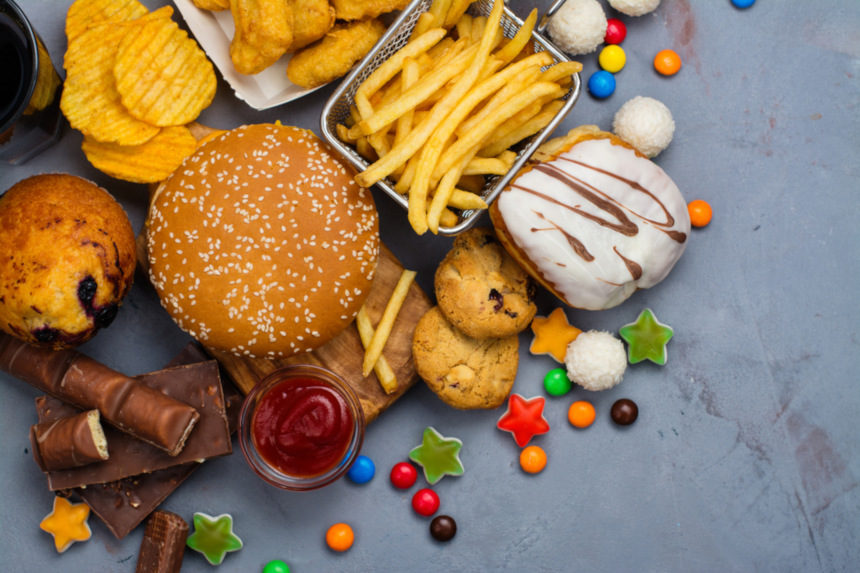“Your Health Checkup” is our online column by Dr. Douglas Zipes, an internationally acclaimed cardiologist, professor, author, inventor, and authority on pacing and electrophysiology. Dr. Zipes is also a contributor to The Saturday Evening Post print magazine. Subscribe to receive thoughtful articles, new fiction, health and wellness advice, and gems from our archive.
Order Dr. Zipes’ new book, Damn the Naysayers: A Doctor’s Memoir.
I’m not much of a junk food eater, although I do like an occasional Steak ‘n Shake double cheeseburger, or a Big Mac with French fries — maybe a half dozen times a year — and, more often, a grilled all-beef hot dog, smothered in mustard and drowning in sauerkraut. My mouth waters as I write this! Mostly, though, I try to eat a reasonably healthy diet, with emphasis on reasonably. However, the food experts are telling us with increasing clamor about the horrors of consuming ultra-processed food.
I wrote about this last year, making the point that ultra-processed foods are packed with artificial flavors, additives, or emulsifiers; typically contain more calories, sugar, fats, and salt than non-processed foods; and are linked to several kinds of cancer.
What, exactly, are ultra-processed foods? They usually consist of junk foods such as chips, cookies, and fast foods like prepackaged dinners. Such foods are industrial formulations with little intact food, generally containing low nutritional value, lots of calories, and multiple ingredients to enhance flavor and prolong shelf life. Consumption of these foods has almost tripled between 1990 and 2010, from 11 percent to 32 percent of daily energy intake.
In addition to studies I mentioned previously, several new reports underscore the potential harm of this bad diet. In a study from Spain of almost 20,000 people followed for 15 years, people in the group consuming the most ultra-processed food (>4 servings daily) had a 62 percent greater risk of death than those consuming the least amount. The more ultra-processed food one consumed, the greater the risk, so for each additional serving, mortality increased by 18 percent. A study of over 100,000 French participants showed that greater consumption of ultra-processed foods was associated with increased risk of heart attacks and strokes.
A similar study from the U.S. found that individuals in the highest quartile of eating ultra-processed food — stuff like sugar-sweetened or artificially sweetened beverages, sweetened milk, sausage, sweetened cereals, and desserts — had a risk of all-cause mortality that increased by 31 percent. A much larger study of 44,500 participants from France also found higher mortality among those consuming ultra-processed foods, but interestingly also noted that these participants were more likely to be younger, live alone, to be physically inactive, have a lower income, a lower educational level, and a higher body mass index. It is important to remember that some of these lifestyle influences can also contribute to mortality.
So, which is cart, and which is horse? Do the lifestyle patterns contribute to eating junk food or does eating junk food impact lifestyle? Very likely both are operative and affect the development of cardiovascular and cerebrovascular diseases in this population.
These epidemiological reports are observational, and direct causality cannot be firmly established. But if the mortality outcomes are not sufficiently convincing to eat a proper diet, how about gaining or losing weight? For this there exists “hard science.”
A trial of twenty inpatient adults randomized to consume ultra-processed versus unprocessed food, each for fourteen days, found that those eating ultra-processed food consumed more calories and gained about two pounds during that time period while those eating unprocessed food consumed fewer calories and lost about two pounds.
Like many of us, I’m a bit overweight and I don’t need much more convincing to limit my ultra-processed food intake than that outcome!
So, readers, eat well, exercise, stop smoking, keep your blood pressure and cholesterol under control, and enjoy good health.
But I still can taste that delicious hot dog!
Featured image: Shutterstock
Become a Saturday Evening Post member and enjoy unlimited access. Subscribe now



